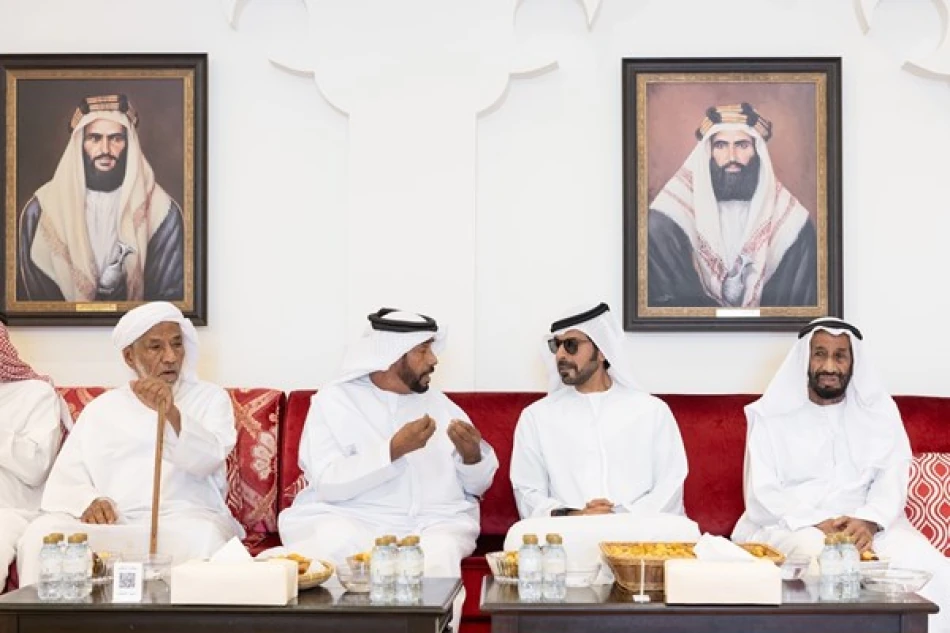
Emirati Leader Extends Condolences Following Passing of Prominent Citizen
UAE Royal Family Member Pays Respects in Al Ain Community Mourning
Sheikh Khalifa bin Tahnoun bin Mohammed Al Nahyan, Chairman of the Abu Dhabi Crown Prince's Court, visited a mourning council in Al Ain to offer condolences for the passing of Suhail Al Khaza Mohammed Al Ameri, demonstrating the UAE leadership's continued commitment to maintaining close ties with local communities across the emirates.
High-Level Condolence Visit Reflects UAE's Governance Approach
During his visit to the mourning council in Al Waqan area of Al Ain, Sheikh Khalifa expressed his sincere condolences and sympathy to the deceased's family. He offered prayers for the departed soul and sought divine comfort for the bereaved family members.
The visit underscores the UAE's traditional approach to governance, where senior royal family members maintain direct contact with citizens during significant life events. This practice has been a cornerstone of the Emirates' social fabric since the country's founding in 1971.
Al Ain's Strategic Importance in UAE's Social Structure
Al Ain, known as the "Garden City" of the UAE, holds particular significance as the birthplace of the late Sheikh Zayed bin Sultan Al Nahyan, the UAE's founding father. The city serves as a cultural heartland where traditional Emirati values and customs are deeply preserved.
Community Engagement as Statecraft
Such personal visits by high-ranking officials serve multiple purposes beyond mere courtesy. They reinforce the social contract between rulers and citizens that has helped maintain stability in the region while other Gulf states have experienced varying degrees of social tension.
This approach contrasts with more distant governance models seen elsewhere in the region, where leadership engagement with ordinary citizens is often more formal and less frequent. The UAE's model has contributed to consistently high citizen satisfaction rates and social cohesion across its diverse population.
Broader Implications for UAE's Social Governance
The continuation of such traditional practices, even as the UAE rapidly modernizes and diversifies its economy, signals the leadership's commitment to balancing progress with cultural preservation. This balance has become increasingly important as the country positions itself as a global hub for business, technology, and tourism while maintaining its cultural identity.
For observers of Gulf politics, these seemingly routine social visits represent the UAE's distinctive approach to maintaining legitimacy through personal connection rather than relying solely on economic prosperity or institutional authority.
Most Viewed News

 Layla Al Mansoori
Layla Al Mansoori






